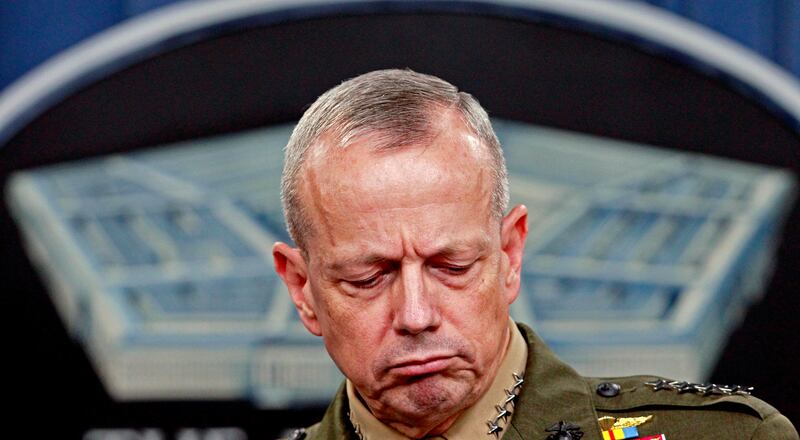John R. Allen, a retired four-star general, is under investigation for using his influence to lobby for the government of Qatar without disclosing the relationship, potentially impacting the foreign policy of the U.S. in the Persian Gulf region, according to The New York Times.
Allen acted as the NATO International Security Assistance Force commander, overseeing 150,00 U.S. and NATO forces in Afghanistan from 2011 to 2013. Following retirement, he served as senior adviser to the defense secretary on Middle East security, and special presidential envoy to the Global Coalition to Counter ISIL. He became president of the Brookings Institution in November 2017, a top policy think tank in Washington, D.C.
Investigation details
- The Associated Press obtained the warrant application filed in April and accidentally released publicly by the Department of Justice.
- Court documents reveal the former general’s travels to Doha, Qatar’s capital, for a promised $20,000 speaker fee, though he never gave a speech. There is no record of the payment, however.
- Allen is accused of lying to federal agents in interviews and hiding his financial interests in Qatar. He has “previously denied ever working as a Qatari agent,” and is cooperating with the investigation, per the AP.
- Records show he was negotiating deals with Qatari firms, one with a potential commission of over $1 million.
- In the warrant application, FBI agent Babak Adib writes, “There is substantial evidence that these FARA violations were willful.”
What is FARA?
From the DOJ website, FARA stands for Foreign Agents Registration Act of 1938. “The central purpose of FARA is to promote transparency with respect to foreign influence within the United States.” By requiring “agents of a foreign principal” to register and disclose pertinent interests and activities, the public makes informed decisions regarding that information.
The investigation expands
The seizure of Allen’s data follows a number of high-profile convictions and trials by influential parties, some of whom Allen associated with.
- Imaad Shah Zuberi, one of Allen’s primary business contacts, plead guilty and was sentenced in 2021 to 12 years in prison for lobbying and campaign contribution crimes. The AP called him a “pay to play” lobbyist in “one of the largest such schemes ever prosecuted.”
- Another member in Allen’s dealings, former U.S. Ambassador Richard G. Olson, was charged last month for his “alleged role in an undisclosed lobbying campaign for the Qatari government,” according to Axios. He has since pleaded guilty.
Recent scrutiny of lobbyists
- Thomas J. Barrack Jr. was an adviser to former President Donald Trump during his candidacy. Barrack and two others were charged with “acting as agents of a foreign government,” for their relationships with senior United Arab Emirates officials, per the DOJ. He pleaded not guilty and was freed on a $250 million bond — one of the highest set in the world, according to CNBC.
- Qatari officials approached a list of 250 “friends, associates, and well-placed admirers of (President Trump),” inviting them to Doha and covering their expenses. This was part of a multimillion-dollar lobbying effort, which likely contributed to the president’s reversed stance on Qatar, per the WSJ.
Why it matters
As humanitarian and diplomatic crises were taking place in the Persian Gulf region, the U.S. public and government officials were allegedly influenced to some unknown degree by millions of dollars in undisclosed lobbying purchased by foreign governments — ultimately swaying policy and sentiment in their favor.


